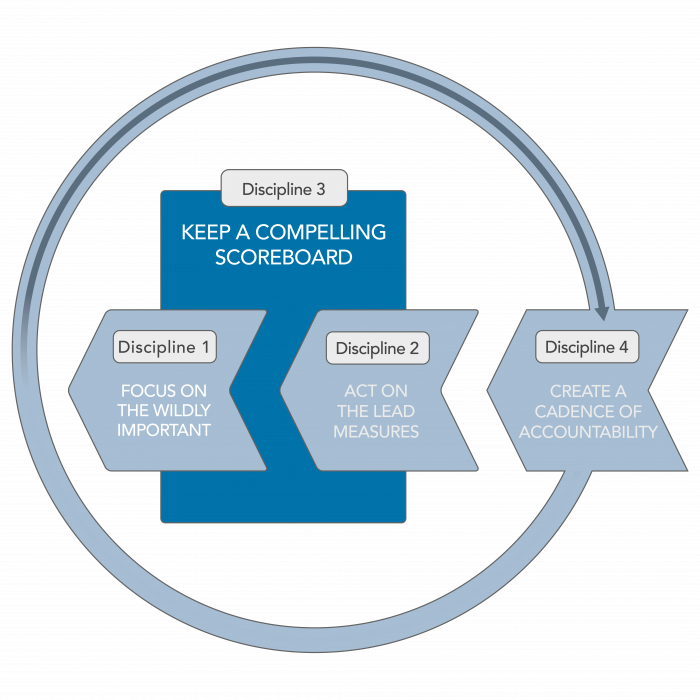Discipline 3: Keep a Compelling Scoreboard

People and teams play differently when they are keeping score.
The right kind of scoreboard motivate players to win. People play differently when they are keeping score. If you doubt this, watch a group of teenagers playing basketball. See how the game changes the minute scorekeeping begins.
The lag and lead measures won’t have much meaning to the team unless they can see the progress in real time. Bowling through a curtain is not that much fun. Discipline 3 is the discipline of engagement. People perform best when they are emotionally engaged, and the highest level of engagement comes when people know whether they are winning or losing.
The best scoreboard is designed for and often by the players. A player’s scoreboard is quite different from the complex scoreboard that coaches love to make.
Keep a compelling scoreboard
The scoreboard is not just for the leaders. The scoreboard is for the whole team. To drive execution, you need a players’ scoreboard with a few simple graphs indicating where you need to be and where you are right now.
With a successful scoreboard, anyone looking at it can determine in five seconds or less whether the team is winning or losing.


Great teams know at every moment whether or not they are winning. They must know, otherwise, they don’t know what they have to do to win the game.
Free Guide
8 Ways to Boost Your Team’s Commitment to Goals
Learn how to get your team on board and moving in the right direction.
Focus on the Wildly Important
Learn More
Act on the Lead Measures
Learn More
Keep a Compelling Scoreboard
Create a Cadence of Accountability
Learn More



